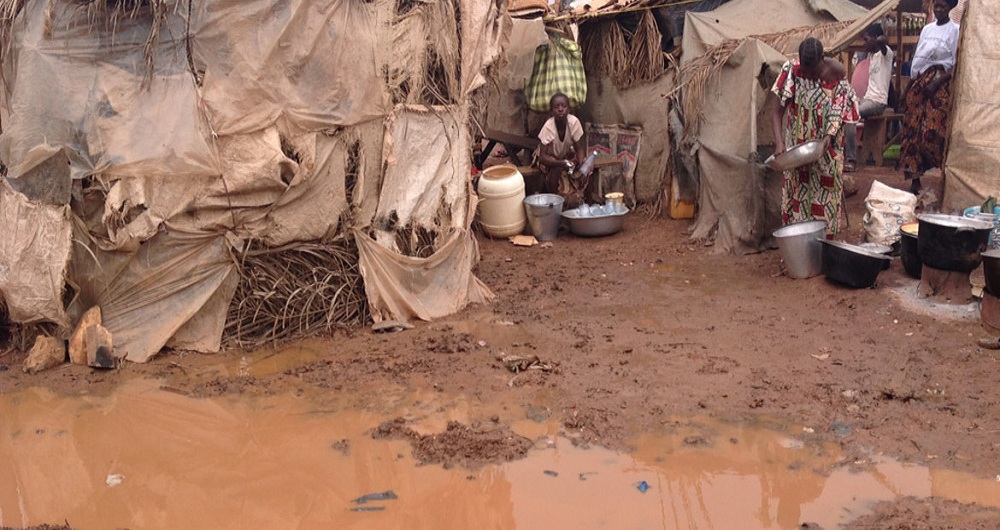Violence-torn Central African Republic is facing an increasingly dire humanitarian situation with high insecurity on the main supply route from Cameroon blocking humanitarian deliveries and prices for basic food products soaring, the United Nations has said, TRT World reported.
UN spokesperson Stephane Dujarric said this is happening as 2.3 million people are already projected to need food, while rapid assessments are showing “alarming figures of severe malnutrition among the newly displaced.”
The UN reported on Friday that 200,000 people have fled their homes in the impoverished country in less than two months and are displaced inside and outside the country.
According to local authorities, 92,000 refugees have reached Congo from Central African Republic and over 13,200 have crossed into Cameroon, Chad and the Republic of Congo, with more continuing to arrive, Dujarric said.
Central African Republic’s former president, Francois Bozize, and his allies have been accused of inciting the latest violence, which erupted after the constitutional court rejected his candidacy to run for president in December.
President Faustin Archange Touadera won re-election in December to a second term with 53 percent of the vote, but he continues to face opposition from forces linked to Bozize.
On January 13, rebels attacked the outskirts of Bangui, killing at least two UN peacekeepers and blocking important access roads to the capital, causing food prices to skyrocket.
The rebel attack was the most serious threat to Bangui since 2013, when a coalition of predominantly Muslim rebels known as Seleka overthrew Bozize’s government.
The Seleka formed a new government that they said would redress the years of marginalization of the country’s Muslim population.
Later that year, that government was challenged by militia fighters known as the anti-Balaka who attacked Bangui.
The anti-Balaka began attacking Muslim civilians, beating people to death in the streets, destroying mosques and forcing tens of thousands of Muslims to flee Bangui in 2014.
The Seleka rebel president eventually stepped aside amid international pressure and an interim government organised democratic elections in 2016, which Touadera won.
